Slow and lazy compost
Before even starting this post, I'd like to make clear that I'm very much aware of the proper way to make and maintain a compost pile. Let it rot! and was my daily reading for 6 months. The Complete Compost Gardening Guide and Teaming with microbes as well.
I also realize there are a wide variety of systems, including rotating plastic bins, vermicomposting, composting only tree leaves and grass clippings, etc...
That said, my experience so far with proper compost proved it to be very time consuming, very labor intensive and very material sensitive! That's the exact opposite of my wants and needs!
In the last 9 years we've been weekend gardeners - the very last 3 of those in our own new garden. What we do need is a place to dispose (without any prior thought or planning) of all organic material that includes everything from a 10 liter bucket of kitchen scraps each week, to a pile of plant stems as tall as I am in a weekend, to a cubic meter of grass clippings in an afternoon!
After reading those books and watching hours of videos and even digging into some scientific research on the topic, I was almost ready to give up composting. I was willing to just dump all the organics I had into a huge messy pile with no regard to carbon-to-nitrogen ratios and moisture levels and temperature measurements and turning it like 10 times a day and just let it rot.
So that's what I did!
And it worked beautifully! Here's the TL;DR version.
What we began with, a 150 cm tall pile of garden "waste".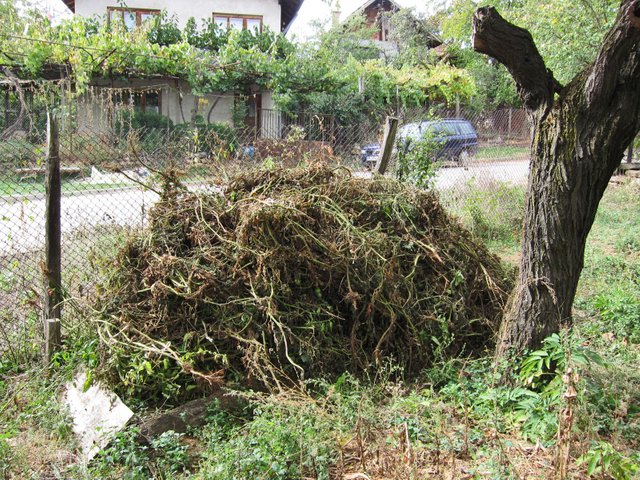
It was covered loosely with 1-2 cm of soil for the winter. Next year we continued piling all (I really cannot stress that enough) household and garden organic material on top. We let it sit another winter.
In the spring, we just pushed the top layer to the side, to become the base of a new pile. And then we sieved the material below using chicken wire. That's what we got as a result.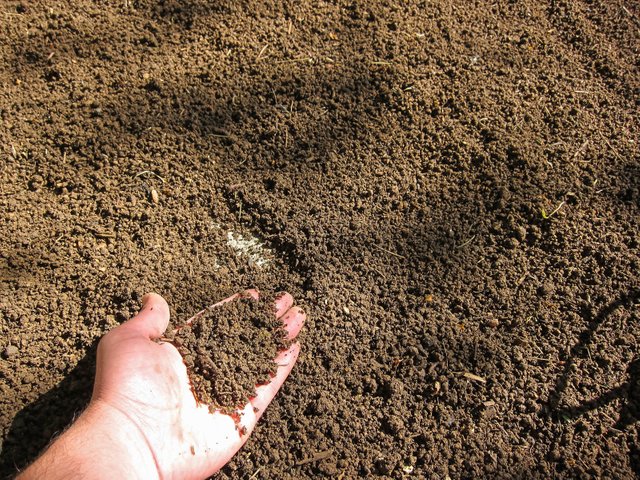
Further details
In the mean time we did several other experiment to see which suited our needs and lifestyle better. We tried:
- Composting in place. Easy, but mess in the garden. OK for a perennial setup. Very slow composting, as plants just lay on the ground. Much improved results if the dead plants are covered with a deep layer of straw for the winter and pressed down, but that requires buying straw.
- Trench composting, a.k.a. pit / hole composting. Very tidy and relatively easy for the weekly bucket, at least during warmer months. Impossible in the winter, except with pre-dug holes, which requires much labor and planning. Also impossible in the autumn, when there's an influx of dead plants. You'll be digging graves for weeks, as a neighbor used to say.
- Using a pre-fab plastic composter of the non-tumbling type. It sucks to pay a very high price for what essentially is an plastic box. Limited space - try to stuff a few wheelbarrows worth of grass clippings and leaves in there! Nice aesthetic, but does not scale. Not much faster than a well-positioned regular pile.
- Keeping red wigglers in a bucket on our apartment's balcony. Just let those loose in the pile for massively improved results, don't bother with the bucket if you're going to have a compost pile!
- We even did some "inverted hugels" as we called them. Instead of stacking wood and then organics and then soil to create a mound (that's rather dry, being a super well-drained medium), we dug a hole, put the rotten wood on the bottom, then piled organics on top and covered with dirt. This setup retains much more water in the first year and allows easy planing in it afterwards - no danger of collapsing sloped walls! Amazingly, all those plants reduces to compost for less than an year and we planted a tree in that hole. We won't be doing that again, however, as it requires plenty of digging - that's always gets the frowns in our family!
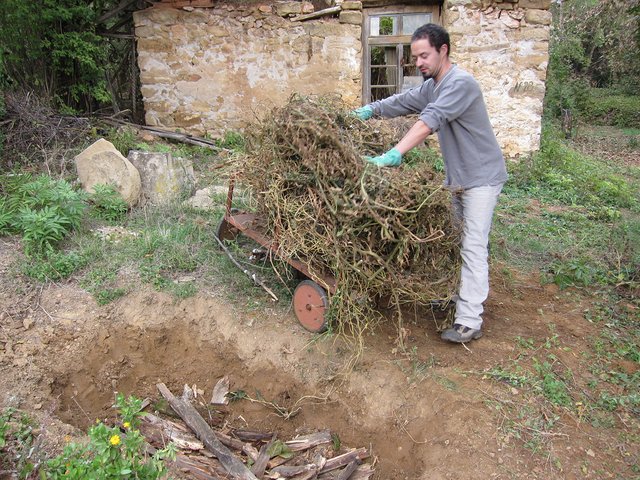
I know that not making a "fast and hot" pile there's the risk of seeds and pathogens living through the process, but frankly, there are much more efficient seeds and pathogen dispersal mechanisms in nature (animals and wind, for example)
I also know that probably most of the nitrogen content has leeched out in the process, but that's OK. Just the organic content + all the beneficial microbes inside alone are enough of a reward for a process that takes no more time or effort than to just pile stuff together!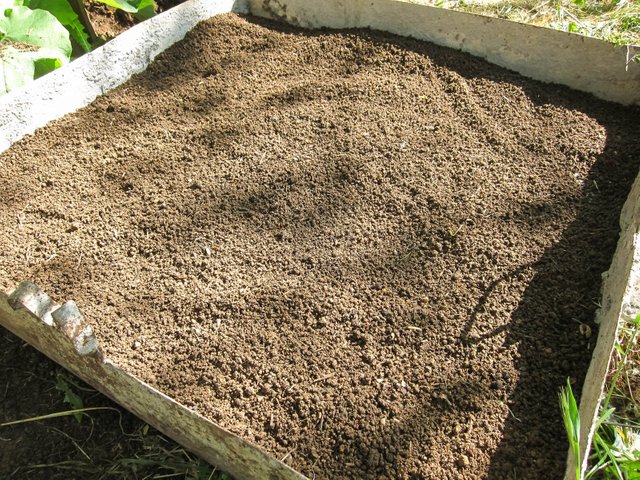
So what's stopping you making your perfectly... acceptable slow compost? Let me know in the comments!
Some of my other posts in the same lazy spirit of "easier done than said"!
Composting being a natural process will happen eventually. How soon you want it translates into how much work you want to do.
Like you, I too am a patient composter.
Exactly! I've done a few "quick and hot" piles, but I rarely have the time for all that monitoring and turning! It's said to take the temperature twice a day - sheesh, I don't measure my kids' temperature that often when they're sick!
We do this too because we're lazy haha. Bonus we got a few potatoes out of it last year!
Oh, I completely forgot about that - the bonuses! We pulled about 200 Roma tomato seedlings from the pile a few years back, with hundreds more just left there to rot. We also regularly get pepper seedlings, which is no surprise, considering what goes into the pile:
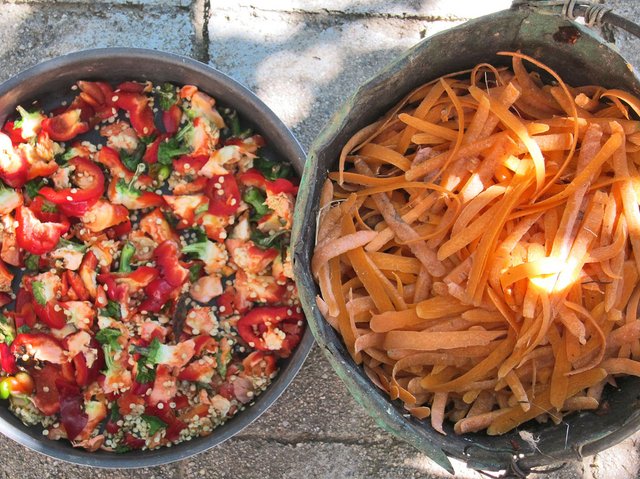
Nice! We also had a couple cantaloupe plants but they were getting eaten by pickle worms so I pulled them
Great share! Been really digging into the concepts behind high-efficiency compost. Edible Acres on YouTube has some very cool walk-throughs of their high-efficiency system - including chickens!
Oh yes! I've been following them! Once you add animals in the mix, the system changes completely! However, we're still not living next to the garden, we're weekend gardeners, so hens are out of the question... for now!
Awesome post! That beginning compost heap looks like it had a lot of gnarly roots in it too! Those stone buildings are also very pretty
That starting compost heap is tomatoes, squash, peppers, pole beans, corn stems and more! The only thing left at the end of the second year were some of the corn husks!
The building is a 100 year old derelict house that's almost fallen down, here's another shot just for you:
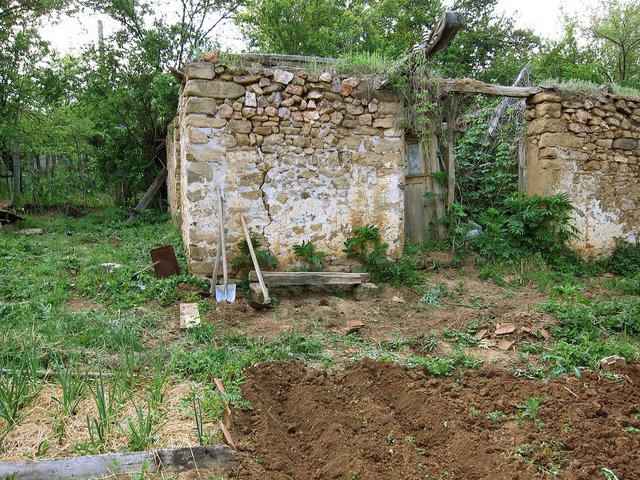
that looks really beautiful! we have a rather passive way of making compost too, and as you say, it's really the organic matter the soil needs. i like to use worm and compost teas so if we are just adding organic matter, those two things can take care of other nutrient needs. i think have a slow and lazy compost is great and i'm glad you're spreading that awareness that people can and should just start composting instead of not doing it!
I'm glad to find another fan of the "lazy" composting! After all, mother Nature has not turned a pile, ever! :D
And another thing, after we added our red worms to the compost pile, it started shrinking noticeably faster and the material in the end is mush finer grained. So even if it's an easy method, it's not that slow.
that's a fantastic idea- to add worms. and oh yes, the way mama nature does it. it makes so much sense to be more passive, i think ;)
I love all things gardening. But every step of the way has to comply with the KISS method. And I agree with you; slow and lazy is the way to go with compost. Some of the composting methods I’ve read about are the opposite of “keep it simple, Stupid.”
Right! Another favorite method of mine is the STUN - sheer total utter neglect, coined by Mark Sheppard, one of my inspirational virtual teachers!
Excellent post.
I too am very much a lazy composter. I did try a tumble composter last year - not very useful.
I now follow a dual approach.
I always try to have a new raised bed on the go and use that for dumping all organic waste that is not likely to start growing again. Once about one third full I start filling with leaves, chippings and then finally a layer of ready to go compost. Then I start another new bed.
Everything else (nettles, grass clumps, weed roots, seed heads etc) I put into the chicken compound and let them do their job on it.
This approach may not be theoretically perfect - but it works, and is very time efficient.
I can hardly wait to start living in our garden so we can have chickens! They are a total game changer!
I agree with you.. the let it sit method is the true "proper" compost! Who needs a new compost pile done in 21 days if you can have last year's compost right now?
Hey @bobydimitrov. I love your easy guide to composting, especially because aparently you'r full on informed about "proper" composting. But you should think about mulching as well. I.e. the grass clippings are excellent mulch for any bed (veggies or flowers). The worms will come in at night and pull all this nitrogen rich organic material into the soil and improve it strongly.
One thing I am wondering about is the color of your sifted compost. It seems quite brown for compost. Would'nt one expect black substrate coming out of a compost pile?
Keep on rocking!
Moritz
Great observation! The main reason the compost is this brown is the color of the local soil. At the end of the season we covered the pile with a few cm of soil. This also happened on the second year. Also, when we dug into the pile and reached the bottom, we found out the soil life mixed the bottom 15-20 cm of the pile with the soil underneath the pile.
So all those things combined with the fact my photo's color balance is a bit to the warm side make the sieved product brownish.
Regarding the mulch. I was planning to do a post on our lazy mulching methods as well :)
We do of course mulch as much as we can! In our new garden, all weeds are composted in place and we add straw + all scythed grass from the micro orchard.
The compost pile I describe in the post above is in our family garden, where we have still not persuaded "the elders" to mulch. So having a compost pile over there is still a massive leap forward, as otherwise they will just dump the organics in the trash.
BAM! Ok. Nothing to add here :D
Still, thank you for your comment!
Check out how Jim Kovaleski feeds his soil directly with grass clippings. Check out this video by Pete Kanaris:
You’re motivating me to compost!
Well that's the best possible outcome, I'm glad!